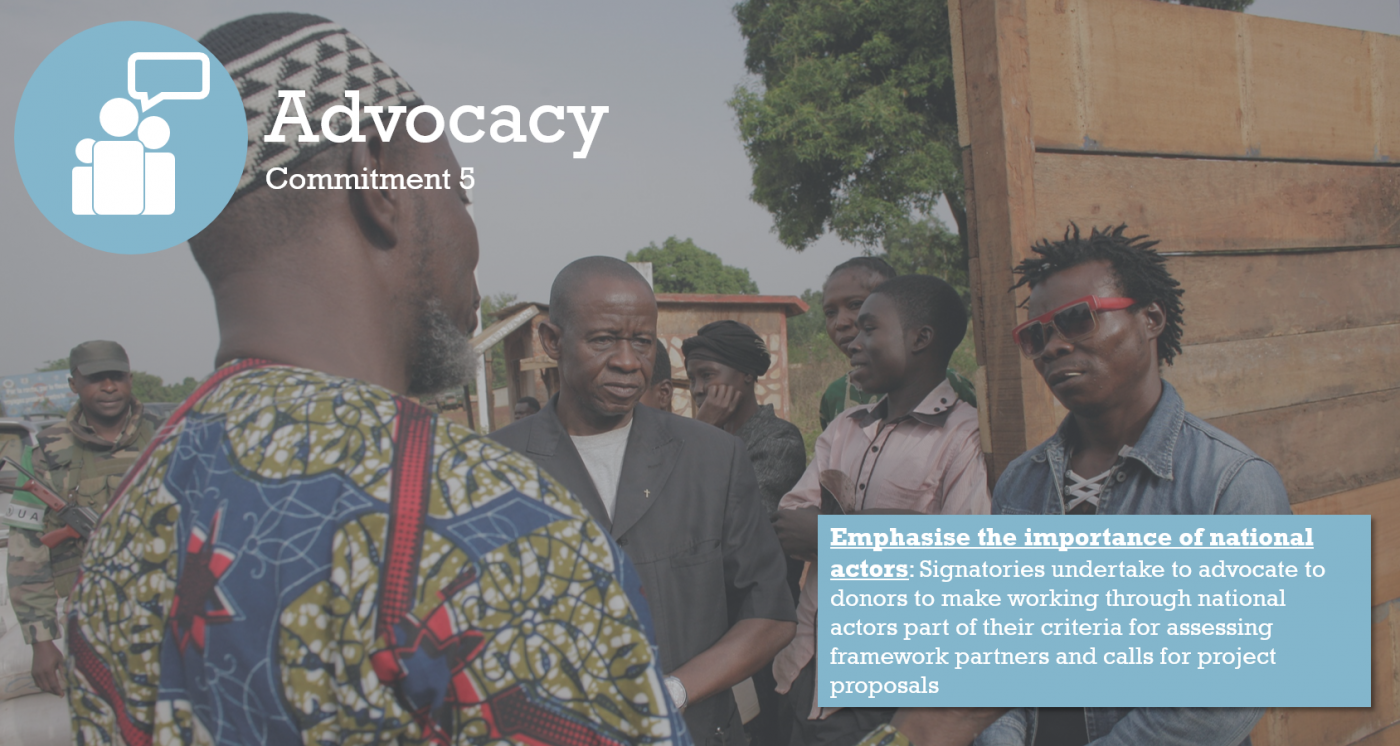It has been a month since I attended the CHS Alliance Conference in Helsinki, along with around seventy human resources (HR) professionals from various International and National NGOs including my own, CAFOD. Some of the other organisations represented included large, well-known INGOs such as Tearfund, Finn Church Aid, Islamic Relief, Christian Aid and Oxfam. But more important, was the presence of local and national organisations, such as the BATAS Foundation (based in Nepal) and Caritas Bangladesh. It was a real privilege to meet so many committed people who were keen grapple with the question of how HR can support the localisation agenda.
What is the localisation agenda? Currently less than 1% of available humanitarian funding worldwide goes directly to local organisations who are already ‘on the ground’, while international NGOs have access to much larger swathes of funding. Local actors have local knowledge, and are well-placed to respond. So clearly the distribution of funding is a key challenge to the effectiveness of humanitarian aid and international development overall.
As well as funding, local organisations frequently run into challenges retaining their skilled staff. Often international NGOs have higher paid jobs, and at times more established systems in place for career development and other areas of ‘people management’. Good people management and career opportunities can have an obvious positive impact on an organisation, but also, for local NGOs, there are times when developed people management systems are required if funding applications, for example, are ever going to be successful.
Discussions around this topic were fascinating. What are we as international and national NGO’s doing to partner with each other, in order to enable national NGOs to become independent in the long term? Clearly an INGO’s success is based on a decreased need to exist! What are we doing to ensure local NGOs are increasingly being able to successfully apply for their own funding, and also have solid people management in place (however that may look in a specific cultural setting) so that they can retain and adequately pay their skilled staff?
The sense I got at the conference was that this is the start of a long-term conversation. Many of these organisations, including CAFOD, already have partnership with NNGOs as a key approach to their work. The conference opened a variety of human resources questions for me around what we can contribute to the localisation response:
1) In order to partner with each other, we as INGOs and NNGOs need to continue to build up our ‘partnership skills’ (i.e. relationship building, training the trainer, coaching, mentoring, knowledge sharing, leadership, collaboration skills). How do we seek to do this most effectively;
2) How do we recruit ethically, so that INGOs are not undermining local capacity, especially during emergencies (see link on how CHS Alliance and CAFOD are starting to seek to address this);
3) How do we seek to address the imbalance of pay in the sector – to reduce the gap between INGO and NNGO pay (see link to Project Fair, where this work has begun);
3) How do we as an international and national NGO community, partner with each other so that we can knowledge share around HR Capacity Building, among other things;
4) How do we INGOs best gain an understanding of the HR needs of our partner NNGOs and vice versa;
5) Do International NGOs need an HR Strategy that includes localisation;
6) How do we ensure support functions such as HR and Finance are included in the work on localisation;
7) How do we structure our organisations to ensure that localisation is the end goal?
Jody Gunn-Russell represented CAFOD at the 2017 Core Humanitarian Standards Conference in Helsinki, Finland. She is currently Human Resources Advisor to her organisation’s humanitarian team.

